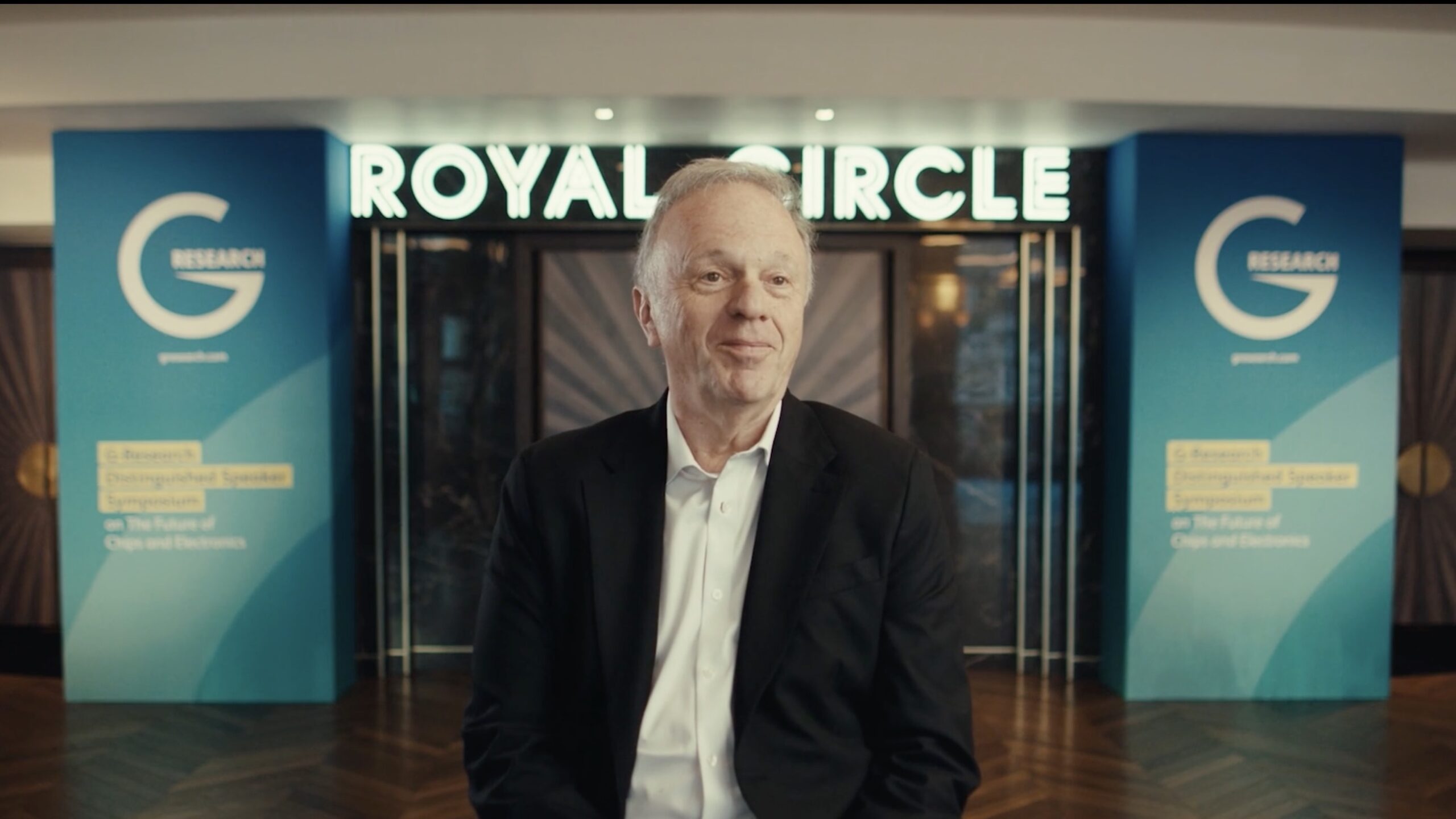Watch the full G-Research Distinguished Speaker Symposium talk from Michael Kagan, as well as those from our other keynote speakers, Professor Sir Andre Geim and James Ashton (Author and Journalist).
An interview with Michael Kagan (CTO at NVIDIA)
2 July 2024
- Quantitative research
- Software engineering
Chips today are actually the basic foundation of pretty much everything, almost like electricity.
Michael Kagan is CTO at NVIDIA, a leader in AI chip manufacturing and one of the world’s most valuable businesses.
As part of his talk at the Distinguished Speaker Symposium on The Future of Chips and Electronics, Kagan discussed the future of microchips, their critical role in modern technology and highlighted the innovation and strategies that keeps NVIDIA at the forefront of that industry.
Before taking to the stage, we spoke to Kagan to gain a deeper insight into the world of GPUs and silicon technology, the role NVIDIA plays in the AI Revolution and what’s next, including quantum computing.

You know, the chips today is actually the basic foundation of pretty much everything, almost like electricity. If the computing technology started when Thomas Watson thought that there is no more than five computers that you can sell worldwide. Uh, just a year ago there was more, more than 30 billion computers were sold. And, uh, most of them actually were not sold as a computers. It was the dishwashers, cars, televisions, whatever. And everything is based on chips and based on silicon technology. And all this operated, not just alone, it's, it's integrated and connected through the data centers, which is basically AI factories that are operated by NVIDIA based supercomputers. So in general, the chips and electronics is the base of, uh, our life, and Nvidia is the foundation or the platform that make all these things available. And working. 20 years ago when the mobility just started, I don't think many people imagined that we can do everything today, uh, online from the phone. So where it will evolve, I can say any specifics. What I can say is that much more people will be able to create, not only consume, but also create the services and applications. Thanks for the generative ai. There's a multiple challenges. The big one is the power efficiency. And, uh, that has to deal with how do we build the computers? How do you architect them? Accelerated computing is, uh, one of the steps, uh, moving, uh, moving forward, uh, to this direction. Uh, the second thing is to make it as accessible and as usable as possible to as many people as it could be. And, uh, today with the generative ai, we call it iPhone moment of ai, it's the same change in the world as, uh, happened when iPhone was introduced that basically enabled everybody to consume services everywhere. The future of silicone. As of today, it's the key technology for computing. Whether it will be another technology or another accelerations, probably quantum computing is being developed. It'll not likely to be available in, you know, a few decades, but at some point it'll evolve. More and more will be required to maintain and sustain our life. So everybody that is in this silicon business will definitely have a job for, for foreseeable future. Nvidia is a very diverse, uh, on one hand and another other one very focused company. And we are focusing on, uh, full stack. So from the photons, from the electrons, all the way up to the application. And you can find, uh, in Nvidia the, you know, huge wealth of technologies. And we are starting top down. We look at the data center as a computer. Uh, we are looking at the application and workloads that are running there. And then, you know, it trickles down to different innovations and the enhancements from computing to physical layers and so on and so forth. We are also looking for emerging technologies, and quantum computer is going to be yet another accelerator, but you need to have a conventional computer next to it. Like today we have a GPU that's actually running the workload, but we are not going to see the volume machine going away. It needs to be around, therefore, to run the application frameworks.

